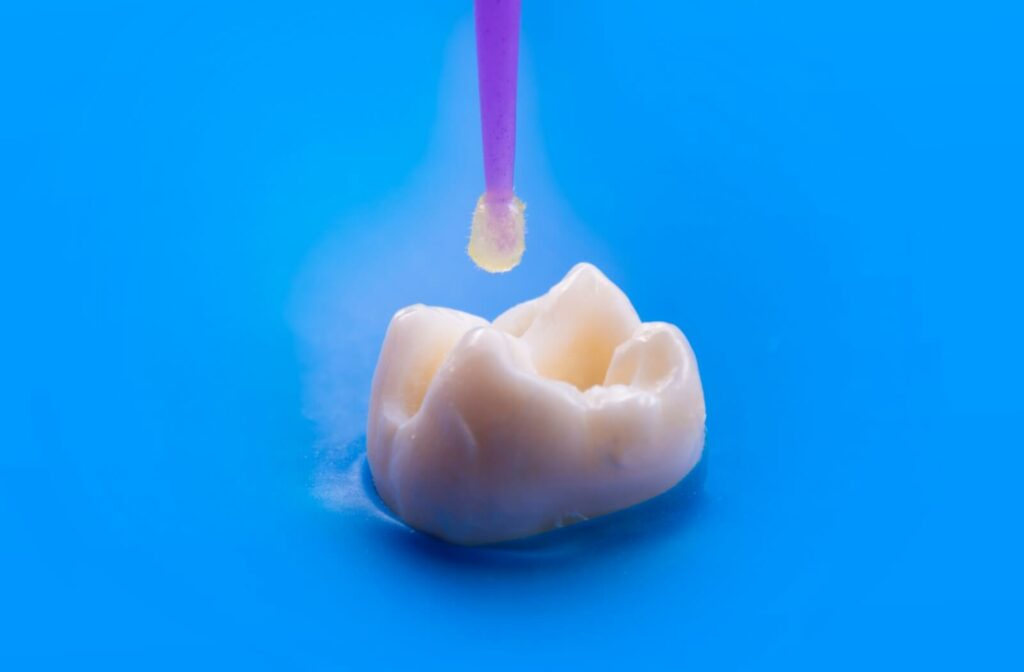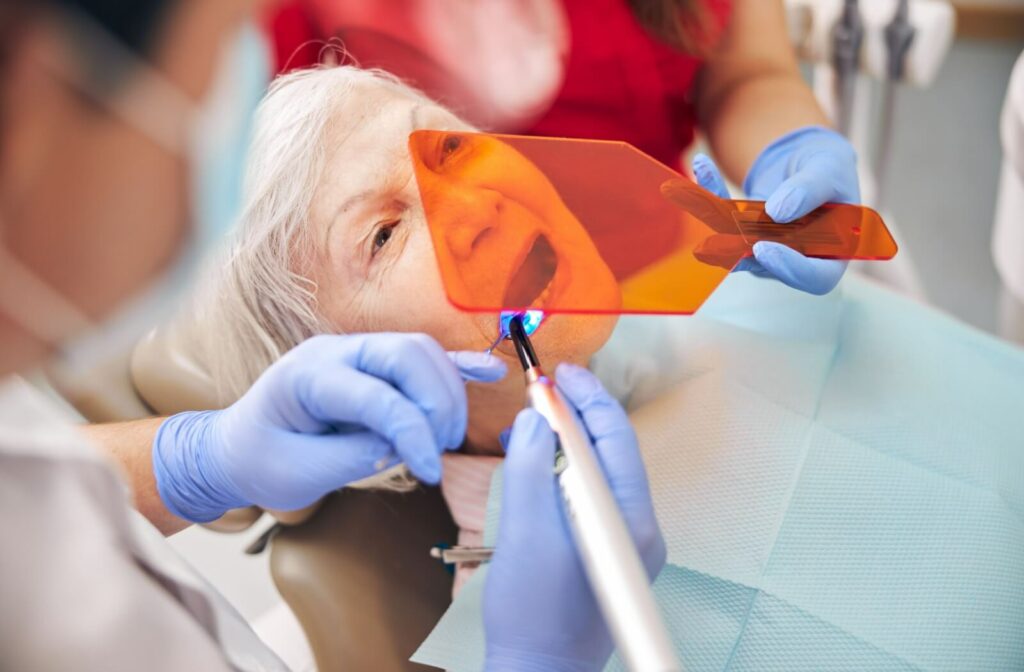Dental bonding can be a valuable option for restorative dental care to people whose teeth have been damaged. Bonding uses a hardened composite resin to fill in and build up parts of teeth that have chipped or cracked, as well as to fix crooked teeth. By using dental bonding, your dentist can restore your teeth to their full function, while also improving their appearance by removing any visible damage.
Dental bonding typically lasts for 4 to 8 years, but with proper care, it can last much longer. The main factors in how long dental bonding lasts are how much stress you put on your teeth, including the types of foods you eat and whether you grind your teeth in your sleep, and how well you care for the bonding.
What Is Dental Bonding?
Dental bonding is a process dentists use for both cosmetic and restorative reasons. Bonding can be used to fill in crooked or gapped teeth and even out their appearance, or painted over a stained tooth to match its colour to the rest of your teeth. Bonding can also be used to repair damage to the teeth, like chipping or cracking.
How Does Dental Bonding Work?
During the bonding process, your dentist will “paint” a composite resin onto the damaged parts of your tooth. Once the resin is in place, your dentist will harden it by exposing it to UV light. The hardening process gives the resin greater durability, so that it can perform the same way as natural tooth enamel, restoring the function your teeth had before they were damaged.
Once the first layer has hardened, the dentist adds and hardens more layers until any damage has been repaired and desired shape has been reached. By adding and hardening layers on top of each other, your dentist can even replace sections of your tooth that were completely chipped off! Finally, your dentist will polish the bonding until it blends in with the surface of your tooth.
How Can I Make Dental Bonding Last Longer?
Because the resin used in dental bonding is designed to mimic tooth enamel, the same factors that cause tooth decay or damage can also damage the bonding. This also means that the best ways to make sure dental bonding lasts longer are the same ways you take care of your teeth.
The acid from bacteria that causes cavities in normal teeth also damages the resin used in bonding. Likewise, highly acidic foods like citrus fruits can also cause bonding to decay more quickly than it otherwise would. Chewing on hard foods like ice cubes can make bonding wear away over time, or even damage it.
Besides diet, other behaviours and environmental factors can affect how long your bonding lasts. Clenching your jaw and grinding your teeth, also known as bruxism, can cause damage to dental bonding.
As a general rule, if it isn’t good for your teeth, it isn’t good for your dental bonding. Thus, it’s important to take preventive steps like practising good oral hygiene to ensure that both the bonding and your regular teeth remain strong.
What If My Dental Bonding Gets Damaged?

Your dentist will examine your dental bonding as part of your regular dental exams. If your bonding has worn away or become damaged somehow, your dentist can repair it by repeating the same process of applying and hardening the bonding resin. Once the bonding is patched up, your dentist will polish it until it blends in with your normal teeth.
Is Dental Bonding Right For Me?
If you have crooked, damaged, or discoloured teeth, dental bonding can be a great way to correct those issues. To learn more, contact Dentistry on Danforth to book an appointment.


